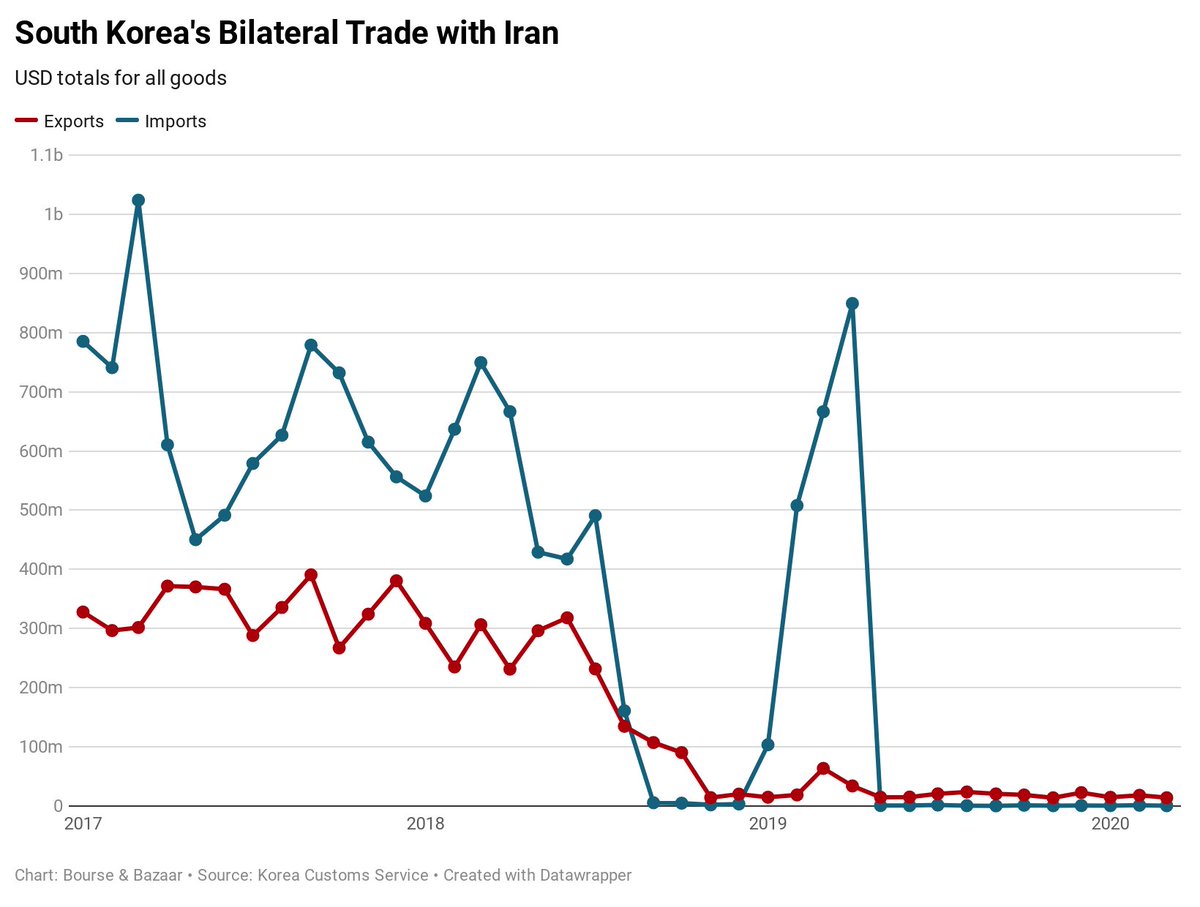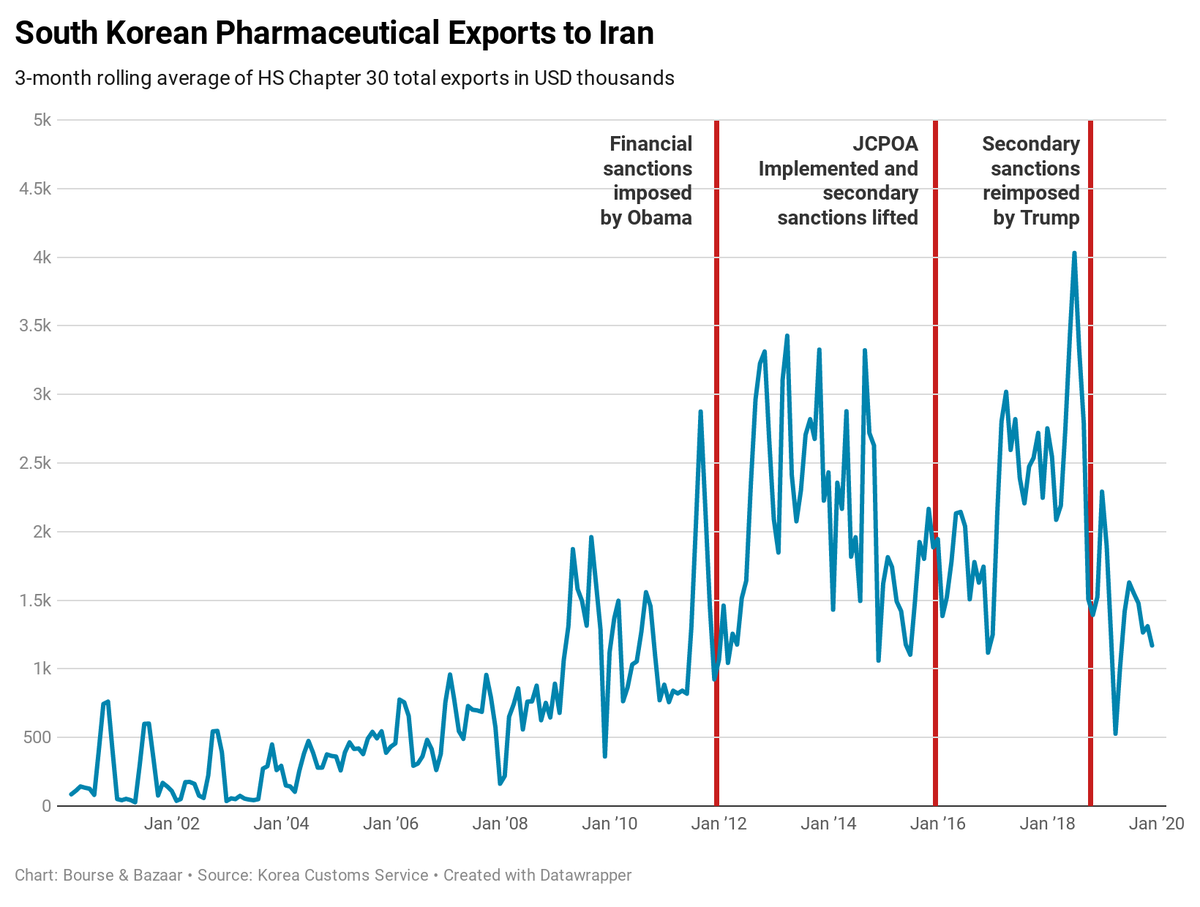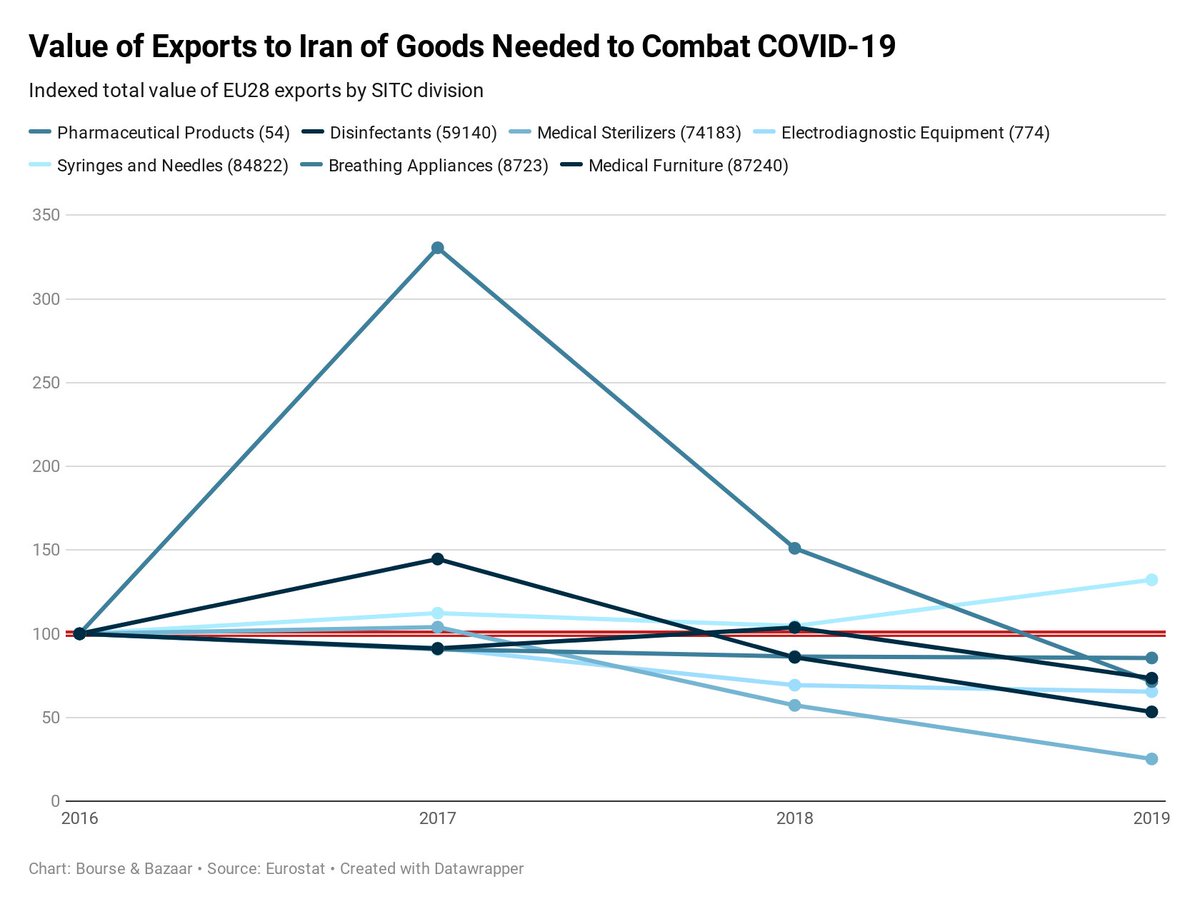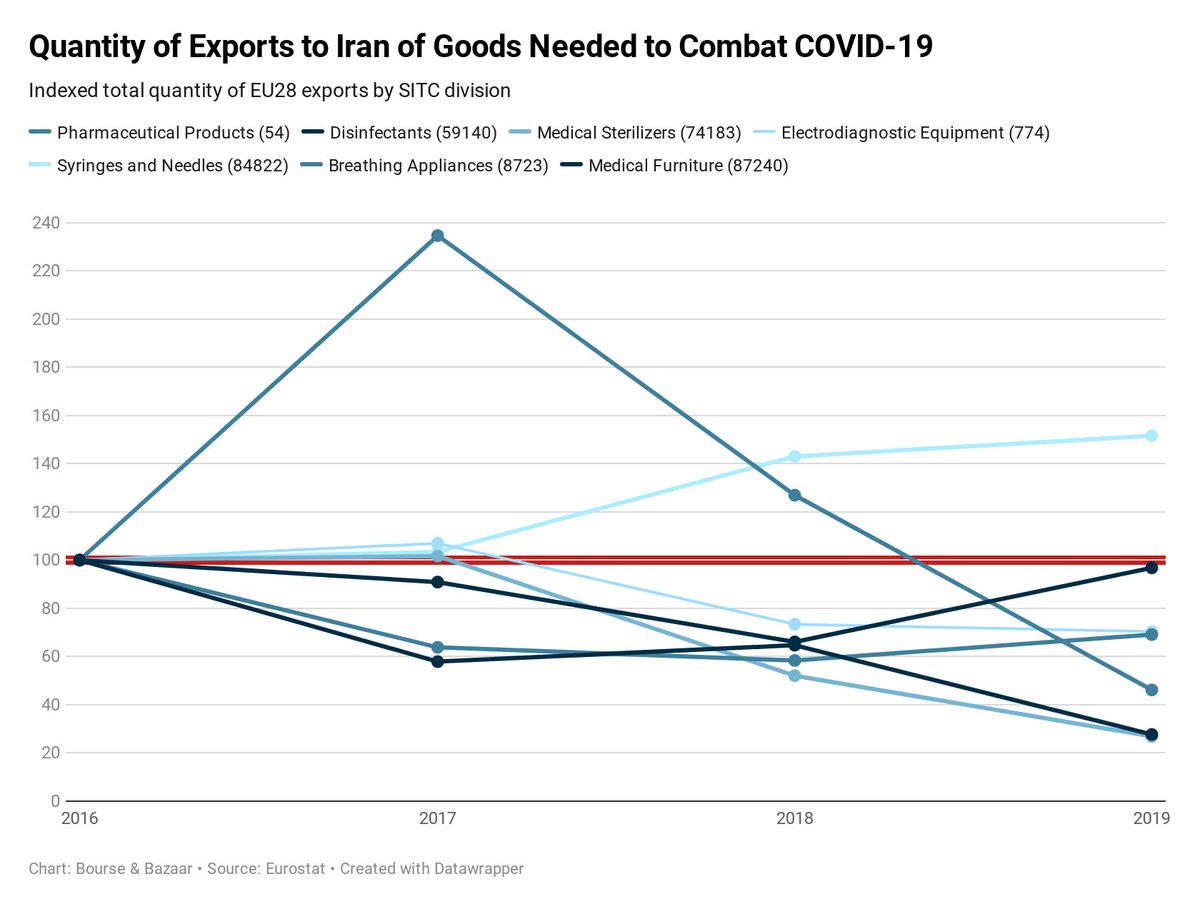South Korea's Woori Bank has refused to honor a ₩5.3bn ($4.1m) letter of credit from Iran's Bank Keshavarzi, which was apparently intended to pay for #COVID19 testing kits.
financialtribune.com/articles/domes…
treasury.gov/resource-cente…
en.yna.co.kr/view/AEN202004…
Iran faces the exact same problem with humanitarian trade in *every single country* during a *global pandemic*.
treasury.gov/resource-cente…
The policy is human misery and it's being spearheaded by Pompeo et al. over the protests of civil servants.
1) That’s irrelevant to the *compliance message* from Woori.
2) It wouldn’t be unusual for a Korean tech firm present in Iran was stepping up to make a purchase of COVID-19 test kits.
The way to get around that is to sell to a Korean company that can ship the kits to Iran. The maker caries less risk.







